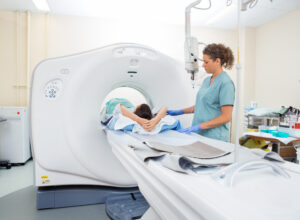Turning 50 is a milestone that often prompts people to take their health more seriously—and for good reason. As we age, the risk of developing heart disease increases, even in people who have never had symptoms before. That’s why heart health screening becomes more important after the age of 50. Early detection of risk factors can lead to early intervention, reducing the risk of heart attack, stroke, and other serious complications.
In Australia, cardiovascular disease remains a leading cause of death, and much of it is preventable. By the time we reach our 50s, the effects of long-term risk factors like high blood pressure, elevated cholesterol, type 2 diabetes, smoking, stress, and inactivity can start to add up. The good news is that targeted heart checks can detect changes well before symptoms develop. These checks are especially important if you have a family history of early heart disease, even if you feel well.
The core components of a heart health screening include a thorough history and physical exam, blood pressure measurement, blood tests (including cholesterol and glucose levels), and a resting electrocardiogram (ECG). Depending on your risk profile, your cardiologist may also recommend an echocardiogram, coronary calcium score, stress test, or 24-hour heart monitor. These tests help detect hidden problems such as coronary artery disease, structural heart conditions, or arrhythmias.
Many Australians over 50 are also candidates for a coronary artery calcium (CAC) score—a low-dose CT scan that measures plaque in the coronary arteries. This can help reclassify someone’s risk, especially if their standard blood tests show borderline results. If the calcium score is elevated, more aggressive management may be recommended, including medication and lifestyle changes. On the other hand, a score of zero can be reassuring, though it doesn’t mean your risk is zero.
Remember, screening is not just about preventing heart attacks—it’s also about protecting your quality of life. Managing high blood pressure, improving cholesterol, quitting smoking, and being active can prevent complications like heart failure or atrial fibrillation. A comprehensive check-up at 50 can serve as a roadmap for maintaining strong heart health into your 60s and beyond.
Recommended Screenings After 50
- Blood pressure check (at least annually)
- Lipid profile (cholesterol and triglycerides)
- Blood glucose or HbA1c for diabetes risk
- Resting ECG
- Echocardiogram if you have symptoms or risk factors
- Coronary calcium score (if you’re at intermediate risk)
- Stress test (if symptoms or risk suggest coronary disease)
- Heart rhythm monitoring (if palpitations or dizziness are present)
FAQs
Q: I feel fine—do I still need a heart check-up at 50?
A: Yes. Heart disease can be silent for years. Many people have no symptoms until a serious event occurs. Screening is about prevention, not just diagnosis.
Q: Is this covered by Medicare?
A: Some components, like the ECG and blood tests, are covered. Others, such as a coronary calcium score, may attract an out-of-pocket cost. Your cardiologist can explain what’s necessary and what’s optional.
Q: What lifestyle changes should I make after 50?
A: A heart-healthy diet, regular physical activity, weight management, limiting alcohol, and stopping smoking are key. Your cardiologist may also discuss medications if your risk is elevated.
Q: How often should I repeat these tests?
A: That depends on your results. Low-risk patients may only need checks every few years; high-risk patients might need more regular monitoring.
Key Takeaways
- Heart screening after 50 helps detect risk factors early—even without symptoms.
- Key tests include blood pressure, cholesterol, glucose, ECG, and possibly imaging.
- Screening can guide decisions about medication, diet, and lifestyle.
- Coronary calcium scores are especially helpful for those with borderline risk.
- Regular check-ups can help prevent heart attacks and maintain quality of life.
If you’re 50 or older, or have a family history of heart disease, request an appointment with Apollo Cardiology, today. A personalised assessment can help you stay ahead of any issues and protect your heart for years to come.
Disclaimer
The information provided on this blog is for general educational purposes only and is not intended as a substitute for professional medical advice, diagnosis, or treatment. Always seek the guidance of your doctor or other qualified healthcare provider with any questions you may have regarding your health or a medical condition. Do not disregard medical advice or delay in seeking it because of something you have read on this website.




